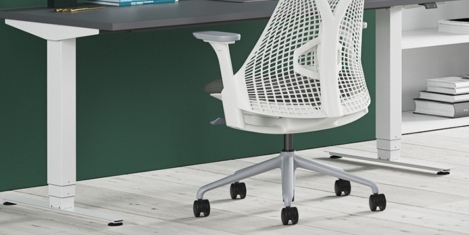To provide the best experiences, we use technologies like cookies to store and/or access device information. Consenting to these technologies will allow us to process data such as browsing behaviour or unique IDs on this site. Not consenting or withdrawing consent, may adversely affect certain features and functions.
The technical storage or access is strictly necessary for the legitimate purpose of enabling the use of a specific service explicitly requested by the subscriber or user, or for the sole purpose of carrying out the transmission of a communication over an electronic communications network.
The technical storage or access is necessary for the legitimate purpose of storing preferences that are not requested by the subscriber or user.
The technical storage or access that is used exclusively for statistical purposes.
The technical storage or access that is used exclusively for anonymous statistical purposes. Without a subpoena, voluntary compliance on the part of your Internet Service Provider, or additional records from a third party, information stored or retrieved for this purpose alone cannot usually be used to identify you.
The technical storage or access is required to create user profiles to send advertising, or to track the user on a website or across several websites for similar marketing purposes.
 A recent study, which was commissioned by Bayfields Opticians & Audiologists and questioned 2000 people, claims people spent an average of three hours and 12 minutes each week on video calls – an increase of 120 percent compared to before lockdown. Connected Brits admit to spending hours getting ready for work-related video calls during lockdown and struggling to get back into the zone once the call is over, leading to millions of hours of ‘wasted’ work time since lockdown.
A recent study, which was commissioned by Bayfields Opticians & Audiologists and questioned 2000 people, claims people spent an average of three hours and 12 minutes each week on video calls – an increase of 120 percent compared to before lockdown. Connected Brits admit to spending hours getting ready for work-related video calls during lockdown and struggling to get back into the zone once the call is over, leading to millions of hours of ‘wasted’ work time since lockdown.


















 According to research conducted by conference call provider
According to research conducted by conference call provider 
 New figures published today claim that more than 9 in 10 working parents and carers surveyed by work-life balance charity
New figures published today claim that more than 9 in 10 working parents and carers surveyed by work-life balance charity 









July 17, 2020
Your working day is never finished, merely abandoned
by Mark Eltringham • Comment, Flexible working, Technology